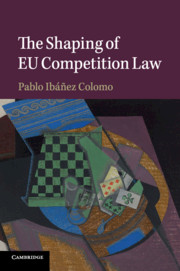Book contents
- The Shaping of EU Competition Law
- The Shaping of EU Competition Law
- Copyright page
- Dedication
- Contents
- Figures, Charts and Tables
- Acknowledgements
- Table of Cases
- Part I Theory
- Part II Analysis
- 3 Restrictions of Competition under Article 101(1) TFEU
- 4 The Notion of Abuse within the Meaning of Article 102 TFEU
- 5 The Substantive Assessment of Mergers
- Part III Implications
- Index
4 - The Notion of Abuse within the Meaning of Article 102 TFEU
from Part II - Analysis
Published online by Cambridge University Press: 23 June 2018
- The Shaping of EU Competition Law
- The Shaping of EU Competition Law
- Copyright page
- Dedication
- Contents
- Figures, Charts and Tables
- Acknowledgements
- Table of Cases
- Part I Theory
- Part II Analysis
- 3 Restrictions of Competition under Article 101(1) TFEU
- 4 The Notion of Abuse within the Meaning of Article 102 TFEU
- 5 The Substantive Assessment of Mergers
- Part III Implications
- Index
Summary
- Type
- Chapter
- Information
- The Shaping of EU Competition Law , pp. 152 - 218Publisher: Cambridge University PressPrint publication year: 2018



